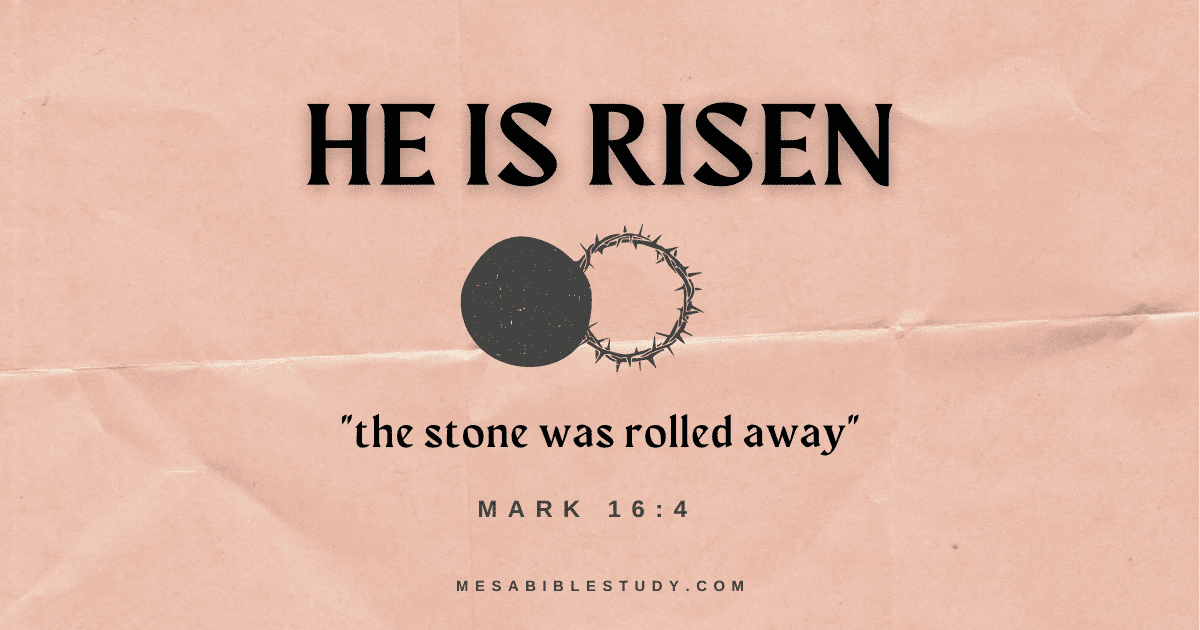The stone that covered the entrance to Jesus’ tomb was not rolled away so that Jesus could get out, for He had already risen. It was to display God’s power!
Mark 16:4 says, “And when they looked up, they saw that the stone had been rolled away—for it was very large.” The stone that covered the entrance to Jesus’ tomb was not rolled away so that Jesus could get out, for He had already risen. Instead, it was rolled away so that the disciples could see that the tomb was empty and that Jesus had fulfilled the prophecy of His resurrection.
The resurrection of Jesus is the most important event in human history. Ephesians 3:10–11 tells us that the resurrection of Jesus was the culmination of all that God does.
‘to the intent that now the manifold wisdom of God might be made known by the church to the principalities and powers in the heavenly places, according to the eternal purpose which He accomplished (through the death, burial and resurrection, the gospel) in Christ Jesus our Lord,’
Ephesians 3:10-11
Without the resurrection, there is no Christianity, no eternal life, no salvation, and no redemption. Yes, the death, shed blood, and burial is crucial to our faith, but without the resurrection, we have nothing. There is no gospel without the resurrection of Jesus.
Resurrection Power
The stone being rolled away is a powerful symbol of the victory that Jesus won over Satan, death, and sin. It shows that the power of God is greater than anything in this world, even death. As we celebrate the resurrection of Jesus, let us remember that it is the cornerstone of our faith. Without it, we would have nothing to believe in, nothing to hope for, and nothing to look forward to.
As believers, we should rejoice in the fact that the resurrection is the ultimate display of God’s power and love for us. Let us never forget the significance of the empty tomb and continue to proclaim the good news of the gospel to all who will hear it.

0 Comments